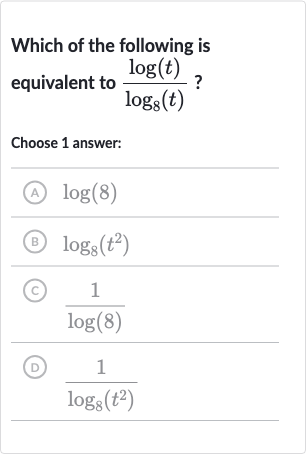Full solution
Q. Which of the following is equivalent to ?Choose answer:(A) (B) (C) (D)
- Multiply by : Simplify the expression by multiplying both numerator and denominator by .
- Cancel out : Cancel out in the numerator and denominator.
More problems from Product property of logarithms
QuestionGet tutor help
QuestionGet tutor help
QuestionGet tutor help
QuestionGet tutor help
QuestionGet tutor help

